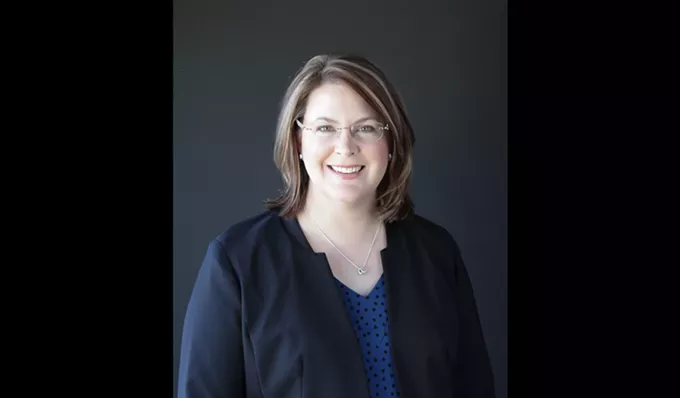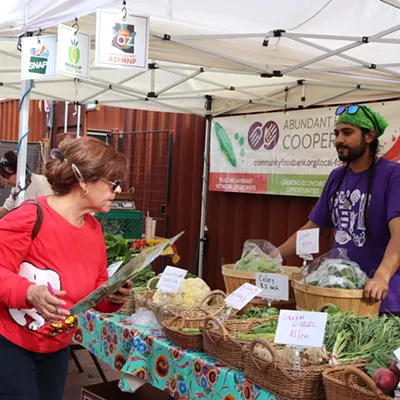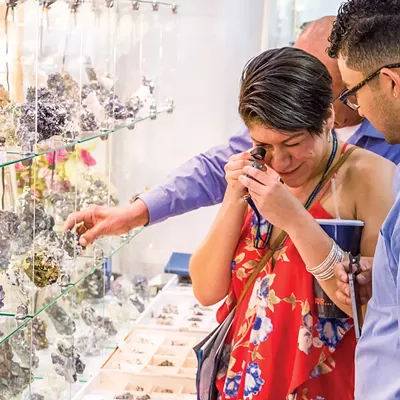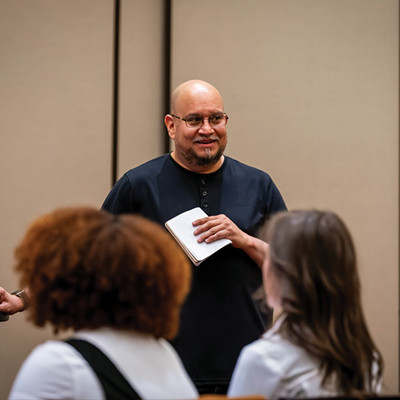
Even though adoptions by same-sex couples and single LGBTQ individuals have been legal in every state since March 2016 — and indeed, pretty much normalized for mainstream America since the very first episode of TV’s “Modern Family” in 2009 — we still hear stories of same-sex couples facing long, demoralizing struggles and sometimes overt discrimination in their efforts to adopt a child.
In fact, Arizona is one of 13 states that still permit state-licensed child welfare agencies to refuse services to LGBTQ people and same-sex couples if doing so conflicts with the organizations’ religious beliefs, according to the LGBTQ think tank Movement Advancement Project.
Heather Strickland, attorney and owner of MyersStrickland, the law firm she formed with now-retired adoption law specialist Scott Myers in 2013, says such horror stories of LGBTQ discrimination in adoptions are actually few and far between.
“I will tell you that in my experience, the vast majority of people placing a child for adoption are open to all families,” she said. “I would say it’s definitely rare for me to have an expectant couple that specifies they want a heterosexual couple. And certainly it is their right to do that, and I’m not judging them, but it doesn’t happen very often. If anything, I think expectant parents are a little bit attracted to same-sex couples because they really want to give their baby to a family that doesn’t have a lot of other opportunities to have a child.”
Strickland also adds another note, drawn from her many years of personal observation.
“I also think, in my personal opinion, that women who are placing a child for adoption are in crisis, but they also don’t want to be judged harshly for what they’re doing,” she said. “And I think sometimes they gravitate to queer families because those are people who have experienced judgment in their life, and I think that they want to work with people who are, in return, not going to judge them for being in a difficult place in their life and having to make an incredibly difficult decision.”
Strickland herself is firmly in the “no judgment” category.
A Tucson native and University of Arizona law school grad, she gained firsthand knowledge of the adoption process when her family became foster parents for a troubled friend.
“When I was in high school, I had a friend who suddenly found herself in the position of it no longer being safe to go home,” she said. “And so she ended up in the care of what was at the time CPS (Child Protective Services, now Arizona Department of Child Safety), and she came and lived with my family — my parents stepped up to the plate and became foster parents for her. So that experience, of seeing what it was like for a young person who really can’t go home through no fault of their own, was really moving.”
Strickland says she didn’t realize it at the time, but after she began practicing law and found herself gravitating toward handling a lot of foster care adoptions, “that’s when it came to the surface for me. Like, ‘Oh yes, I really, truly understand the importance of this.’”
She quickly became an advocate of people looking to form “chosen families” through adoption, a concept particularly important to the LGBTQ community. While not a part of that community herself — Strickland lives with her husband and two sons — she’s clearly a compassionate ally.
“Some of the feedback that I’ve gotten from past clients has been, ‘We really appreciate the fact that we didn’t have to explain our family to you.’ And I can see how that is something that they value. There’s no judgment here about how you choose to grow your family. Everything’s on the table. We just have to create the legal relationships that allow people to make it happen.”
Some of that involves working with adoption agencies, social workers and birth parents that are LGBTQ inclusive and supportive.
“They need to find the right fit, and when it comes to adoption agencies, there are some that are not going to be the right fit for them,” she said. That also comes into play during the home study process, a critical step in adoption where a social worker assesses the prospective adoptive parents’ suitability. While Arizona law prohibits discrimination based on sexual orientation or gender identity in this process, it’s possible that biases could influence the social worker’s decision.
“That’s when it helps to know somebody such as me that can at least guide them and point them in the right direction for the agencies that are willing to work with all families.”
Or sometimes no agency at all. “Agency fees are on the rise, and so some people would rather do an independent adoption, where they do not use an agency to find their match,” Strickland added. “Some couples really lean into their social networks and social media, and will just say, ‘Hey, we’re looking for a match,’ and start that friend-of-a-friend kind of chain. That also gives them more control over the process.”
Beyond facilitating the best legal relationships for adoption, Strickland also helps same-sex couples navigate the assisted reproduction process if they desire to have a biological child of their own.
“For same-sex female couples, a lot of them will choose to achieve a pregnancy with one of them carrying, so some will go to a sperm bank while others will use a known donor, like a family friend,” she said. “For same-sex male couples, they need not only donated eggs, but they also need to hire or find a gestational carrier to carry the pregnancy for them. In each of these cases, it’s important that they have a contract put in place, to make it clear what everybody’s intentions are.
“The most challenging cases are when a couple comes to me after a pregnancy has been achieved and they haven’t put anything in writing,” she added. “I think couples really need to speak with an attorney before they achieve a pregnancy.”
Whether going with adoption or assisted reproduction, Strickland advises LGBTQ people and same-sex couples to start by looking for allies in the legal community — an unfortunately short list. The Tucson LGBT Chamber of Commerce lists only five they recommend as gay-friendly, including MyersStrickland.
“There’s just so few of us, even in the entire state,” Strickland said. “But I do think it’s important to go with somebody who’s very comfortable and vocal about saying, ‘We welcome all families.’ You have to start with that foundation.”










